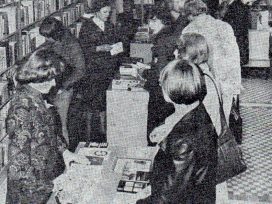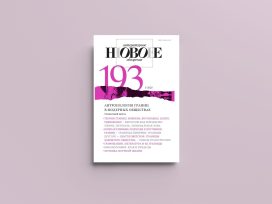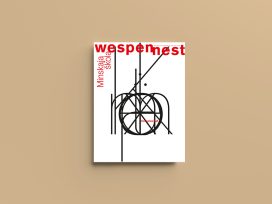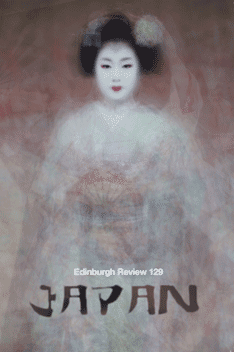 When the road is clear, as often in the early evening when the neon lights begin to beckon, the bus ride into Shinjuku from Otakibashi takes a bare ten minutes. But there are times of the day when it can take the best part of an hour, the road so cluttered with lorries and cars that only the tired and the elderly resist the temptation to alight and complete the journey on foot.
When the road is clear, as often in the early evening when the neon lights begin to beckon, the bus ride into Shinjuku from Otakibashi takes a bare ten minutes. But there are times of the day when it can take the best part of an hour, the road so cluttered with lorries and cars that only the tired and the elderly resist the temptation to alight and complete the journey on foot.
Otakibashi lies on a westward spoke from Shinjuku, one of Tokyo’s major commercial hubs that boasts the busiest station in the world (20 per cent of the city’s population are said to use it at least once a day). Nondescript, a place to pass through rather than visit, Otakibashi is typical of many neighbourhoods in this insomniac city, not just in the confluence of apartment blocks, warehouses, ramshackle noodle restaurants and all-night convenience stores but in the vanished significance of its evocative name – “The Bridge by the Little Waterfall”. A native poet, versed in the Japanese art of ignoring the unpleasant, could rehearse a paean of syllables to the cherry blossoms lining the concrete banks of the Kanda river, before the March rains wash them into the brown channel below, but the view from the strip of road across it would inspire no contemplation in a latter-day Wordsworth. In all directions the vision is cut short by blocks of grey, or steel-blue office fronts, or a tangle of cables and rooftop billboards. And though there are some evenings when the very tenements must indeed be asleep, the hush is invariably broken by the cacophony of hot-rodders and the wailing of ambulances and fire engines.
Two o’clock on a busy weekday afternoon. A “non-step” bus with a meagre twenty seats pulls up, and I shuffle down the aisle and grab an overhead strap. The noise begins the moment we move off, as the next stop is announced by a disembodied female voice, the ubiquitous nanny of Japan. (Once, on a busy street nearby, I heard her say: Mothers, there’s a lot of traffic about today, so please take extra care of your children.) The destination flashes up on the digital screen above the driver’s seat, and the driver, wired up in his commentary box, repeats the announcement into his mouthpiece. When someone presses the “stop” button, the screen reveals the bus will stop at the stated destination. The driver adds his confirmation.
The bus soon stops at traffic lights. The driver switches off the engine and solicits our patience. The lights are red, he explains. When they change the engine kicks into life again and the driver requests we hold on tight. At the junction just ahead the road bears gently to the right – the driver briefs us in good time – and the long, straight crawl towards Shinjuku begins, on the left the estate agent with the “Foreigners Welcome” sign, on the right a row of vending machines for drinks and cigarettes. In his accustomed place on the pavement in front of the peeling blocks of council flats, relics of the Fifties, sits the local vagabond beside his barrow of bottles and papers, shrouded in his heavy blanket and matted hair, engrossed as ever in his sketch-pad.
We reach the stop within five minutes – not bad for the first three hundred yards – and the rear door opens to an earful of buzzer to let a passenger off, while at the front four more get on. The Voice announces our imminent departure, politely requesting we hold on tight, but years of nanny talk have bred a frightening immunity: as the driver hits the pedal, a teenage girl topples from her platform boots and an elderly lady lands in someone’s lap.
We inch our way past the new fire station, recently moved from the other side of the road, where a group of firefighters are doing calisthenics in the yard, shouting in unison with every jump and turn, and grind to a halt by the local police post. Three officers stand chatting outside by the board which records the neighbourhood casualties (four injured, two dead), hoping perhaps for a more eventful day. Behind them a huge new apartment block, a cream and ochre monolith, rears up and stretches away down the road behind a thin green line of saplings, multicoloured bedspreads draped over balconies, satellite dishes glinting in the sun. At the crossroads ahead the lights turn from red to green, but the bus sits still, engine off, and the lights turn red again. A few minutes later we move another twenty yards, and the engine is cut. The driver solicits our patience. The lights are red, he says, and the traffic is heavy today.
Then Coming Through the Rye strikes up and the platform-booted girl fumbles in her bag for her mobile phone. “Hello… Oh hi!… How’s things?… Eh?… Can’t hear you… What?… You fibber!… Really?… You did it?… Eh?… I don’t believe it… Really?…”
I try to adopt the Buddha-like expression of my Japanese peers and for once am pleased to hear the sudden strident decibels of the local sweet-potato vendor edging towards us on the other side of the road, a tailback of traffic behind the roaring flames of the wood-fired grill on the back of his van. I cease to wonder at the peculiar lawlessness of Japan, which allows fuel-laden vehicles to drive around with open fires, as the tinny twang of “Yakiimo! Yakiiiiimo!” reaches a crescendo and reverberates into the distance behind.
We have moved ahead and are stationary now beside a little garage forecourt. A black Mercedes makes a pit stop to a barrage of bellowed welcomes from an army of uniformed attendants – one to clean the windscreen, one to fill the tank, one to take the money, one to fashion a gap in the traffic – and then, caps off and bows neatly executed, a barrage of bellowed thank-yous. Beneath the concrete railway bridge the bus is shaken by the thunder of a train overhead. Anti-Russian graffiti on the walls demand the return of the Northern Territories.
We sidle past the Hotel Keiyo, a marble-fronted tower whose car-park attendant stands sweltering in his blue and yellow-braided uniform, a horseless hussar who has wandered into the wrong century, and arrive at Okubo-dori crossroads. This stop for Okubo Station, also for Kuwabara Surgery and King Tiger Ramen, telephone 3856-2177. The Voice adds a request: Ladies and gentlemen, please wait for the bus to stop before getting off. I cease to wonder how it is possible to get off otherwise when the doors are controlled by the driver.
Once past Okubo-dori – and its hidden warrens of “Love Hotels” – we’re about halfway. Vehicles parked on both sides of the road force the two-way traffic into a hair’s breadth of each other. To left and right the fast food outlets, mobile phone shops, stationers, liquor stores, and “antique” record shops jostle for prominence, and everywhere, tucked into the gaps between them or hogging the pavements, in couples or in groups of six, vending machines for drinks and cigarettes.
Ladies and Gentlemen, umbrellas are available from the driver at 500 yen each. I quickly scan the heavens for clouds. When we reach Minami-dori the driver reminds those getting off not to forget their belongings. The back door buzzes open; the front door slams shut; the bell for the next stop rings; The Voice confirms; the driver reiterates; and Coming Through the Rye begins.
A siren brings us to another standstill and an ambulance finds the miraculous inches to weave its way through to the hospital on the corner of the next crossroads, a bellowing voice from its loudspeaker urging traffic to move aside. We set off again and halt at green lights: a stretched limousine with smoked-glass windows is caught in the middle of the junction, blocking traffic both ways. Any other vehicle would provoke an allegro of horns, but the inconvenienced are strangely patient. On the pavement a cyclist narrowly misses an oblivious mother and child, and the red-skirted lady we passed twenty minutes ago saunters by.
We inch our way to Shinjuku Hirokoji past cafes, discount clothes stores, fast food outlets, and vending machines. Suddenly two bikers cut in front, all sputtering exhaust and engine revs, and the bus brakes heavily. The driver apologises. Shinjuku Hirokoji. Shinjuku Hirokoji. This stop for Kobayashi Bookstore and My Home Loan. After The Voice, the driver tells us the next stop is Shinjuku Hirokoji. When Coming Through the Rye strikes up, I stick my fingers in my ears and think of Schopenhauer.
The amount of noise a person can bear undisturbed, he wrote, is in inverse proportion to their mental capacity and is thus a pretty fair measure of it. I steal a few glances at the impassive faces around me. Is this the immunity to noise he identified, such as renders people insensitive to argument, to ideas, to intellectual impressions of every kind? Is it merely the weariness of acceptance and monotony, the spiritual fatigue of daily life in the world’s most crowded metropolis? Or am I seeing urban Zen in practice, devoid of its monkish austerity, the art of motorcycle tolerance?
We hit the final crossroads, where six lanes of traffic thunder along Omekaido. Banalities blare from a giant video screen high on a corner building. A man with a megaphone outside a camera shop competes with another at a discount computer store across the road. Finally the bus noses into the circus of traffic opposite the station and slots into its terminus beside the waiting queue for the return journey. The driver thanks us for our patience and for using his company’s transport. I cease to wonder how we could use any other when this is the only company plying the route.
I step off the bus into a blitz of decibels from a loud-speaker truck by the Keio department store. The nationalists want the islands back, but no one pays much attention. Perhaps the ears their words are falling on really are deaf by now.
Somewhere in the distance a siren wails as I head underground. The ticket machines give out their endless beep-beep-beeps, like a plague of demented cicadas. Are the Japanese the only people in the world who, having just put money in a machine to buy a ticket, need to be instantly reminded to collect the purchased product?
As I head for the ticket barrier, the clamour of the platform jingles and announcements above already audible, I cease to wonder, and at ten to three head into the busiest station in the world.
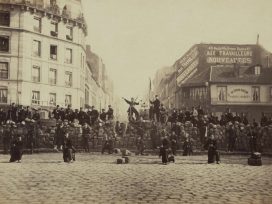
 When the road is clear, as often in the early evening when the neon lights begin to beckon, the bus ride into Shinjuku from Otakibashi takes a bare ten minutes. But there are times of the day when it can take the best part of an hour, the road so cluttered with lorries and cars that only the tired and the elderly resist the temptation to alight and complete the journey on foot.
When the road is clear, as often in the early evening when the neon lights begin to beckon, the bus ride into Shinjuku from Otakibashi takes a bare ten minutes. But there are times of the day when it can take the best part of an hour, the road so cluttered with lorries and cars that only the tired and the elderly resist the temptation to alight and complete the journey on foot.

